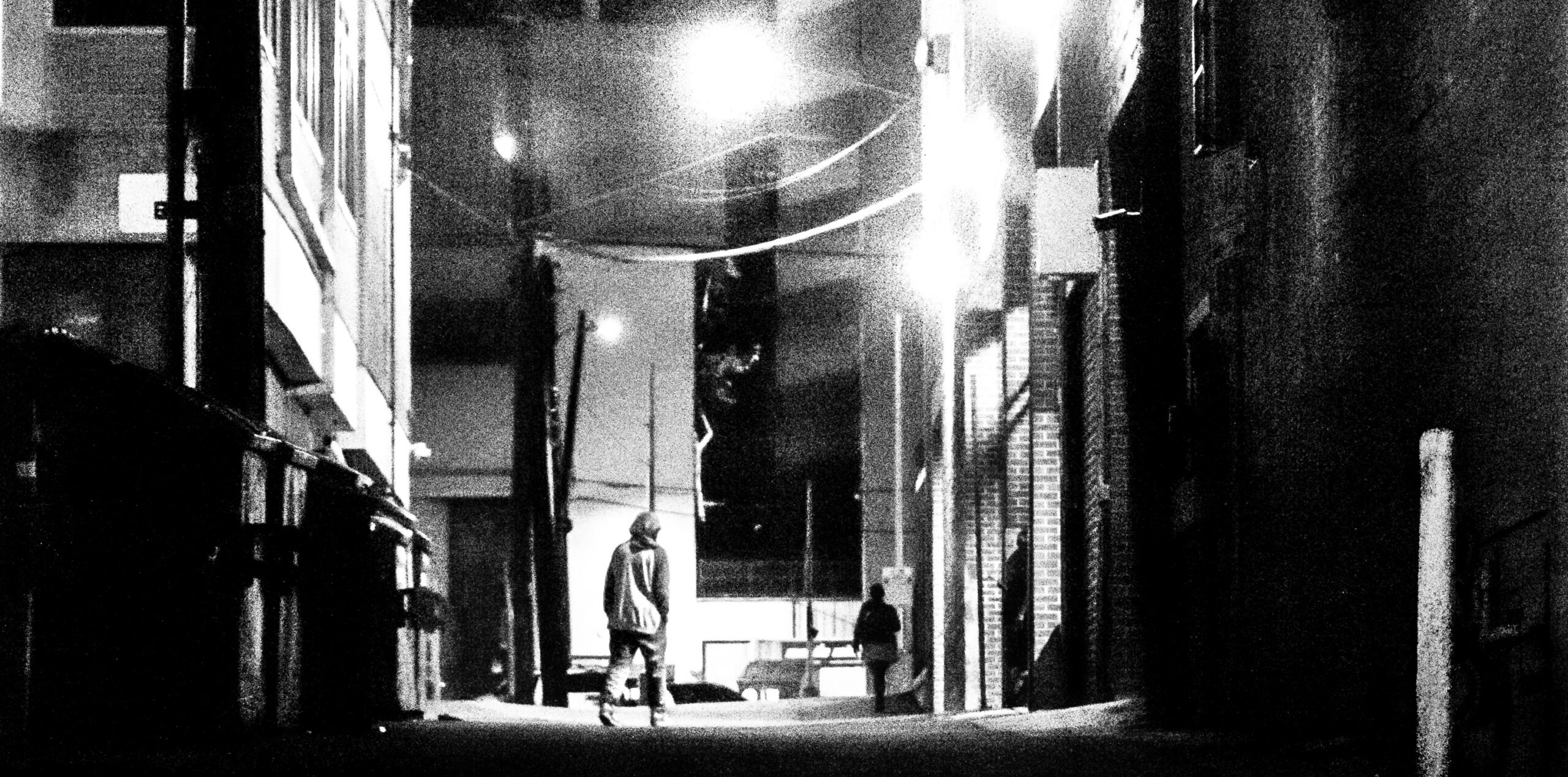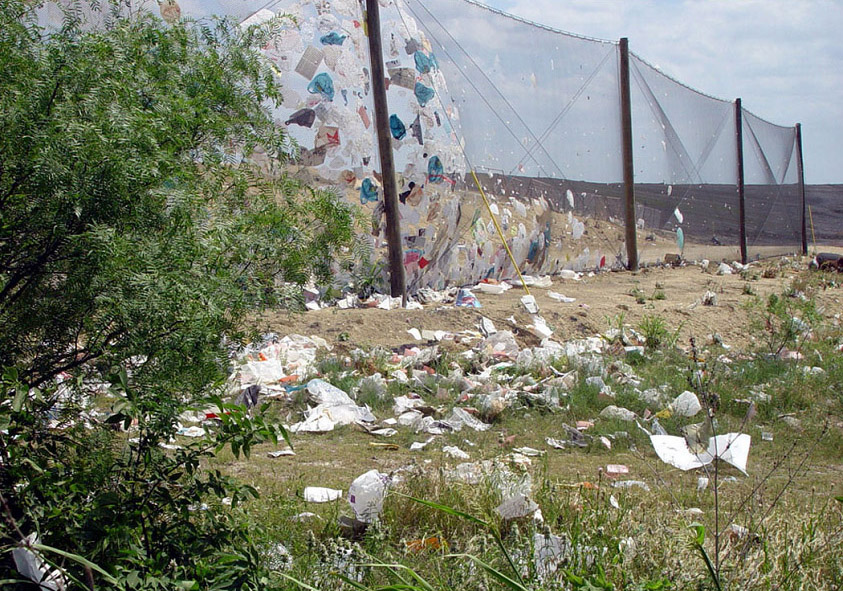
To Bag or Not to Bag: Retailers at a Crossroads after Texas Supreme Court Strikes Bag Ban
Since a court ruling nullified plastic bag bans in 11 Texas cities, some retailers have continued to voluntarily observe the law, while others are handing out bags again.
Nine-year-old Mauricio Treviño is every retailer’s worst nightmare.
On a field trip that included a walk along the Rio Grande recently, his grandmother, Laredo businesswoman Tina Treviño, took Mauricio and her nine other grandchildren to a taquería for lunch. The restaurateur brought their order, served in Styrofoam and double-bagged in plastic. Having just seen an exhibit on plastic pollution at the Laredo Water Museum, Mauricio eyed the bags and spoke up.
“Do you know, sir, that this plastic will take 1,000 years to decompose? And that these Styrofoam things will never disintegrate? Do you know that’s what you’ll be leaving me?”
The man turned red and began to stammer, Tina Treviño recalls. “He didn’t really know what to say,” she said.
The Laredo restaurant owner faces the same question as retailers in 10 other Texas cities, where local bans on single-use plastic bags were recently upended by a Texas Supreme Court ruling: To bag or not to bag?
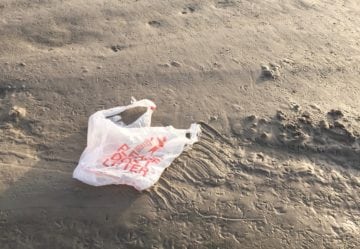
The stakes are high. Austin’s ordinance alone is estimated to have reduced single-use plastic bag litter by 75 percent and yearly consumption by nearly 197 million bags. On South Padre Island, trash in the Gulf was noticeably diminished, and in some small towns in South and West Texas, the “plastic tumbleweeds” that threatened local livestock became an endangered species.
For some — like Hill Abell, owner of the five-store chain Bicycle Sport Shop in Austin — voluntarily observing a ban on single-use bags is a no-brainer. His customers have been getting along fine since the capital city’s ordinance was enacted in March 2013, he said.
“Everyone is waking up to the fact that we have a plastic pollution problem that’s out of control,” said Abell, who has also phased out selling drinks in plastic bottles.
The Austin City Council is expected to approve a resolution Thursday that would affirm its single-use bag ordinance as part of city law, and urge retailers to continue honoring the ordinance, despite the fact that it is now unenforceable.
Click on the cities for information about individual bag bans.
Some large retailers have already brought the bags back to some markets, while others are waiting for competitors to jump first. Walmart, for example, is handing out the bags in at least some stores, including Brownsville and Eagle Pass, and is charging 11 cents per paper bag at other locations, activists said. (The company’s press office didn’t return a request for comment.) Leslie Sweet, an HEB spokesperson, said the grocery giant is also providing plastic bags to customers in Eagle Pass and Brownsville, and is “still evaluating whether to bring the bags back to Laredo and Austin.” Hobby Lobby, Target and Ross have brought plastic bags back to some cities that previously had bans, including Laredo, where the initial lawsuit that led to the court ruling was filed.
The Laredo City Council passed a ban on single-use plastic bags in 2014, citing the costs associated with cleaning public spaces, creeks and the wastewater system. Despite a dramatic drop in bag litter and a majority of public support, the Laredo Merchants Association, a group of local business owners, alleged in the lawsuit that the ordinance conflicted with a state law regulating waste disposal.
“There’s been a tremendous outpouring of support not to go backwards,” said Tricia Cortez, executive director for the Rio Grande International Study Center, an organization behind the nearly decade-long campaign against single-use bags in Laredo.
The city rolled out a similar campaign to Austin’s, called Love Laredo B.I.G. (for Bag It Green), encouraging retailers and shoppers to stick with reusable bags. Smaller, regional chains, like Pump N Shop and Gonzalez Auto Parts, have pledged to observe the border city’s ordinance, as have dozens of local businesses. Treviño’s family company, Treviño Eye Clinic and Optical, has gone to reusable and paper bags for customers, eliminated Styrofoam in the break room and provided each staff member with a reusable bag to bring their lunch.
Laredo officials have defended their decision to shell out nearly $500,000 in legal fees in an attempt to uphold the ban, pointing to $1.7 million the city estimates it saved since 2014 in equipment and salaries related to dealing with plastic bag trash.
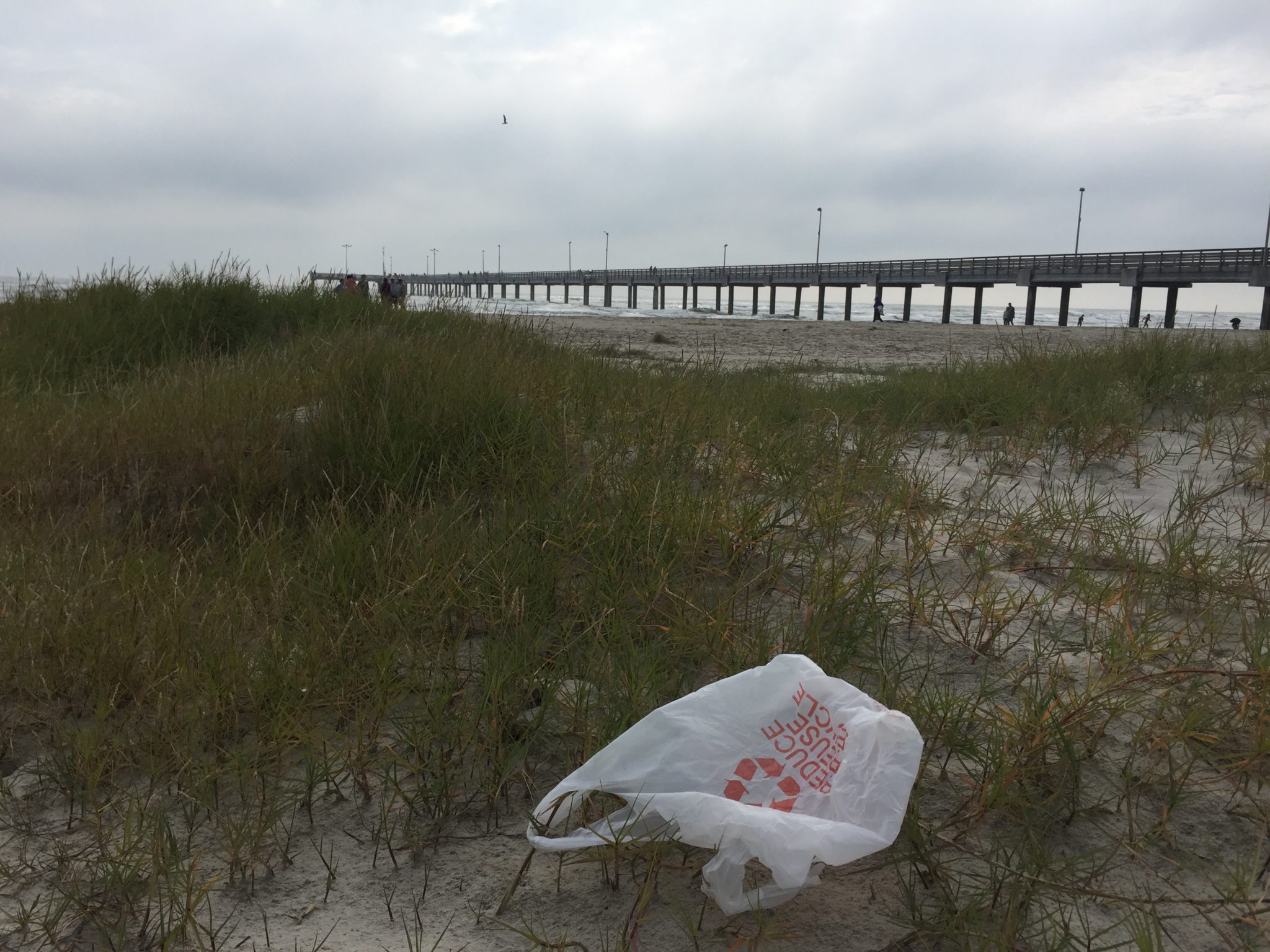
But as Laredo and Austin continue the fight for voluntary compliance, some small town governments have backed off completely.
For example, in the South Texas town of Freer (population 2,818), officials passed an ordinance in 2012 to cut down on livestock and wildlife eating plastic bags and the ugly phenomenon of bags getting snagged on cactus and barbed wire.
“Most people were really happy with the ordinance; it’s just that a couple of businesses were really against it,” said Gil Saenz, city attorney and sheep rancher.
Freer has a Lowe’s supermarket, a Family Dollar, a Dollar General and several convenience stores, all of which brought back the bags almost immediately, he said.
“Everyone is waking up to the fact that we have a plastic pollution problem that’s out of control.”
Saenz said the Freer ordinance would have stood a chance in court because it was worded differently than Laredo’s, but that the city council backed off out of fear of a pricey legal battle.
“It was pretty much a certainty that we would be facing litigation if we tried to enforce the law,” he said. “It seems to me to be a harmful state overreach on things that should be up to the local communities.”
Brownsville activists, too, are struggling to hold the line as their 9-year-old ordinance — the first in Texas and the 12th in the nation — crumbles.
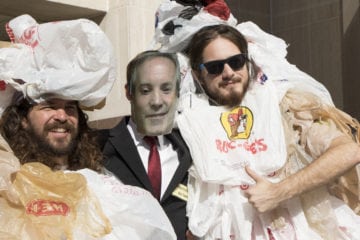
“It was a culture change here in Brownsville,” said Rose Timmer, executive director of Healthy Communities of Brownsville. Her organization estimated that 350,000 fewer bags were consumed per day in the city as a result of the ordinance. The water bodies surrounding the city — the Rio Grande, the Gulf of Mexico and the resacas — were no longer strewn with bags, Timmer said.
But in late July, Walmart re-introduced the plastic bags in its Brownsville stores. Soon after, HEB and others followed.
Timmer said she called a local Walmart multiple times to ask about their bag policy, but never received an official response. Eventually, she went into the store to ask a manager. “He said his customers were asking for [plastic bags]. He said, ‘We’re a customer-driven business,’” Timmer said.
Scott Sonenshein, a professor of management at Rice University who researches environmental activism, said stores have options beyond simply giving out plastic bags or not. Some, like the grocery chain Aldi’s, for example, have always charged customers for a range of bag options, including paper and reusable plastic. Others, like Trader Joe’s, offer used product boxes to customers as an alternative. Last week, Kroger announced a decision to phase out plastic bags in its stores nationwide by 2025, beginning next year with Seattle.
“When you’re customer-driven, that doesn’t mean your customers aren’t changing. People are a lot more aware of the adverse environmental impacts of using plastic bags,” said Sonenshein. “The most resourceful companies are able to do both — they’re able to meet their customer demands, and they’re able to do so in a way that minimizes the environmental footprint.”
